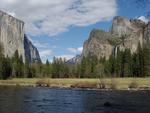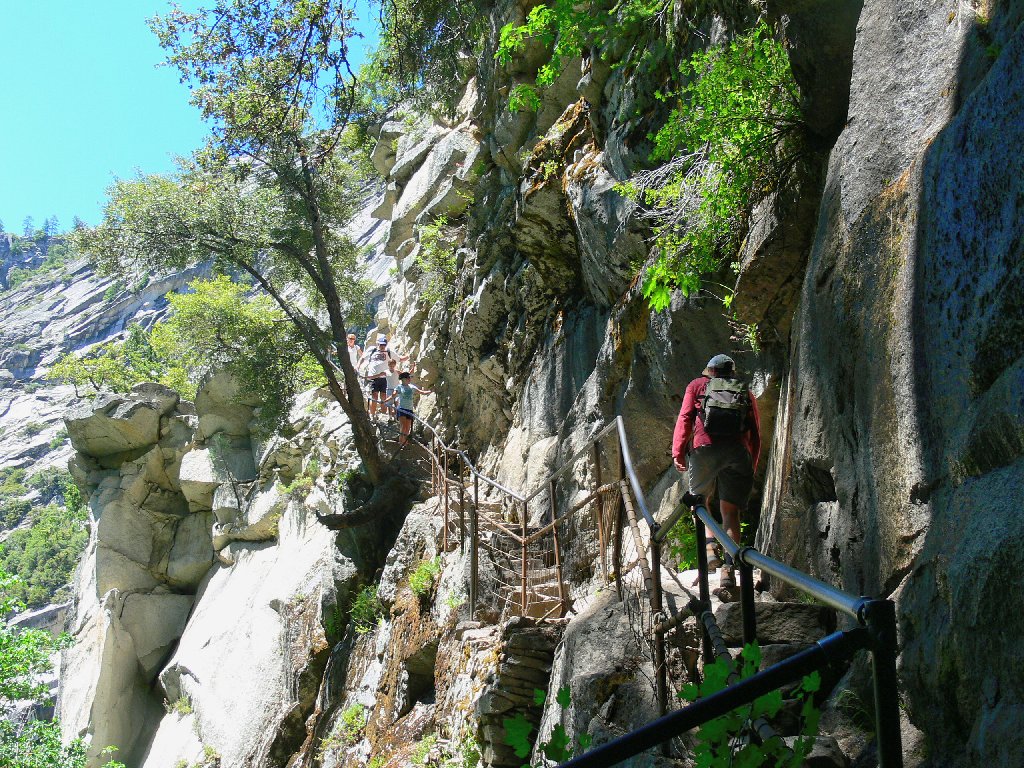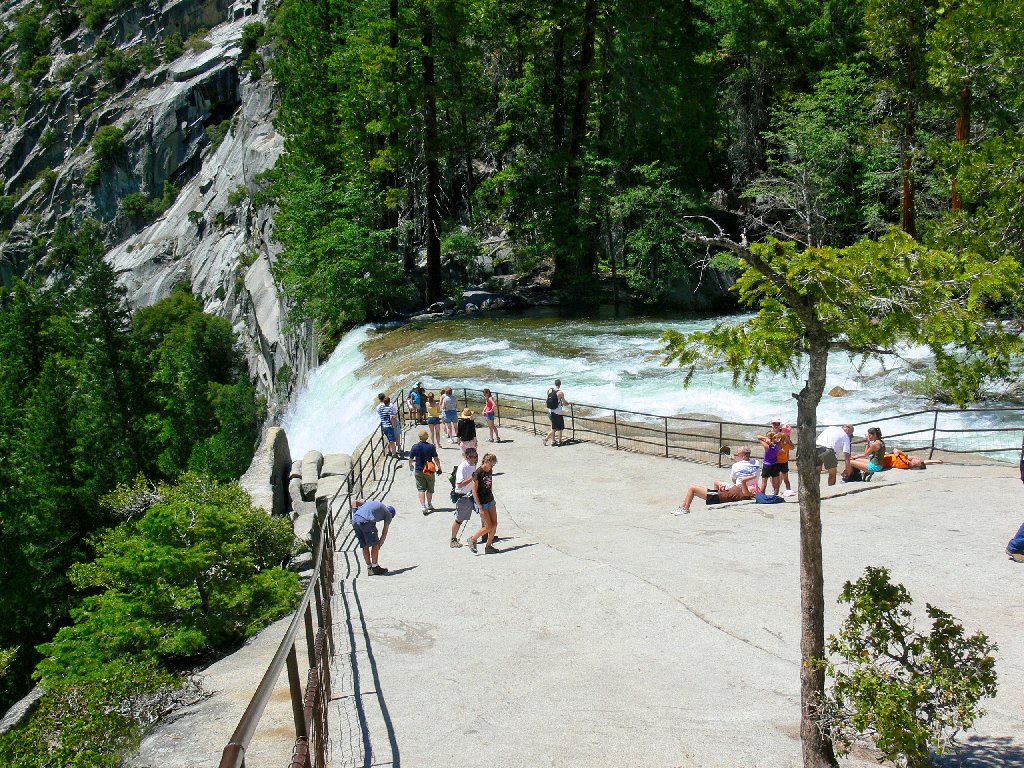I crossed this bridge about a week before this incident. My friends and I were backpacking at Rancheria Falls. We're experienced backpackers, and this wasn't the first time we'd been there. On the way in, the bridge was fine, but on our way out, the westernmost end of the west bridge was under a huge amount of white water, which I'm assuming is what swept the two folks away. Let me make this clear: It LOOKED dangerous. You don't need a sign to know it's probably a really bad idea to cross that bridge. White water was sweeping over the bridge probably two or three feet off the ground.
We decided to cross anyway. We weighed the risks and thought it'd be better to cross there than to hike twenty miles around the bridge. As I was walking, the water swept me off my feet and pushed me halfway through the lower rail of the bridge. My lower body was dangling outside of the bridge, and the water was so powerful that I could not get up in my own strength. My friend had to come back and pull me out. The bridge almost swept me away.
Now, I have much sympathy for these people's families. This was a tragic accident, and it's terrible anytime anyone loses their life in the wilderness. With that said, when I crossed, I knew the danger that I was putting myself in. You'd have to be quite ignorant to have seen what we saw on the bridge and not thought it was dangerous. I believe that these two people knew the danger they were getting into, but decided to go across anyway, believing that the risk would pay off. There's no way that these people, who from what I've read seem to be experienced hikers, could not have understood the danger of this bridge crossing. There's just no way. It's obvious when you see whitewater flowing a few feet over the bridge.
It's not the park service's duty to close every dangerous section of trail, or else every trail would be closed, because wilderness has an inherent element of danger. A hiker, whether experienced or not, assumes risks when he or she enters the wilderness, and there are signs that point this fact out when one enters a trail. I believe these people knew the risks they were taking, but thought that it would be worth it, just as I did when I crossed the bridge. When you're in the wilderness and something goes wrong, the only person you have to blame is yourself. That's what makes it wilderness, and that's part of what makes it so compelling to people. The job of the park service is to protect the wilderness for people who want to venture into it, not to hold folks' hands as they walk through it. Perhaps Ms. Cobb could have been more sensitive. I don't know. I wasn't there. But nothing she said was untrue, whether people like it or not.







 . You were quite numb by the time you reached the other side. While we were at Vernon, several tried to cross but gave up after a few feet. I would suggest that this was a more dangerous crossing than the Wapama bridge. Even if the two returned in this direction, that would of had to deal with this obstacle.
. You were quite numb by the time you reached the other side. While we were at Vernon, several tried to cross but gave up after a few feet. I would suggest that this was a more dangerous crossing than the Wapama bridge. Even if the two returned in this direction, that would of had to deal with this obstacle.



